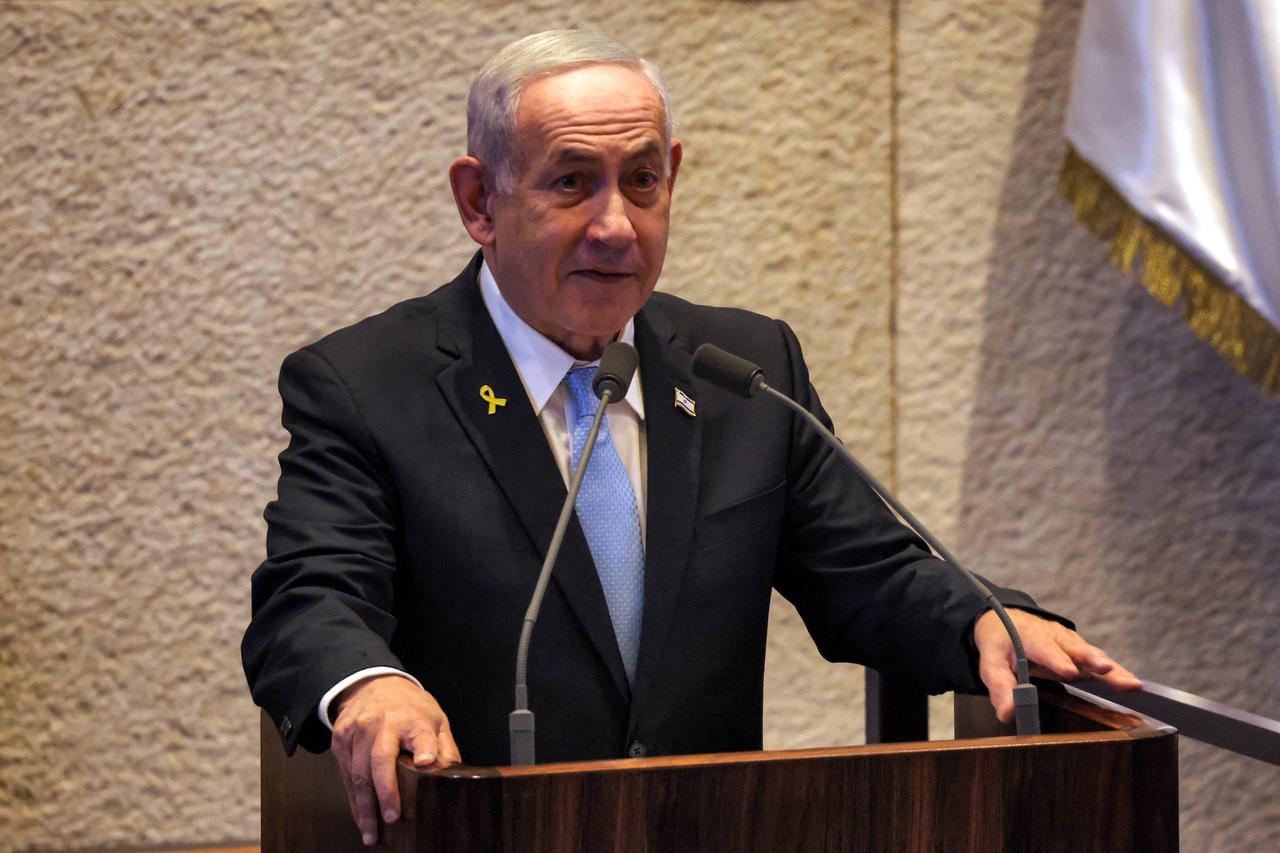
Israeli Prime Minister Benjamin Netanyahu, who is wanted by International Criminal Court (ICC) due to war crimes, has stated that he does not believe the Ottoman Empire will return anytime soon during his speech at the Knesset, Israeli parliament, on the occasion of Argentine President Javier Milei’s visit.
Speaking before the full assembly, Netanyahu noted that Argentina began to serve as a refuge for Jews in the second half of the 19th century, not only from Eastern Europe but also from the Ottoman Empire.
He claimed Jews fled the region due to economic hardship and rising antisemitism.
While discussing the Ottoman Empire, Netanyahu said, “Although some may disagree with me, I do not believe the Ottoman Empire will return anytime soon. It will not return.”
In a tweet in 2018, Netanyahu had said that the First World War ended the Ottoman Empire and paved the way for the “rise of the Zionist movement."
Expelled Spanish Jews, also known as Sephardic Jews, arrived in Ottoman lands in the 15th century at the invitation of Sultan Bayezid II, who sent a fleet to evacuate them and offered them Ottoman citizenship and complete religious liberty.
Although the numbers differ, as 13,000 Jews were executed in Spain in 1492, tens of thousands of Sephardic Jews set sail for Ottoman territories.

Netanyahu also referenced Jewish philanthropist Maurice de Hirsch, who invested heavily in enabling Jews to settle and establish colonies in Argentina. He emphasized that although Theodor Herzl ultimately did not favor Argentina as the site for a Jewish homeland, the country remained highly significant for the Jewish people.
Turning to Jerusalem, Netanyahu pointed to Israel’s occupation of East Jerusalem in 1967 and stated, “Fifty-eight years ago, we reunified Jerusalem, and I promise on behalf of all my friends here, it will never be divided again.”
Despite widespread reports and criticism of Israel’s restrictions on the religious freedoms of Muslim and Christian Palestinians in East Jerusalem, Netanyahu asserted that Israel guarantees freedom of religion in the city.
He also targeted Iran in his address, accusing the country of waging a war against Israel. Netanyahu claimed that Israel has "largely crippled" Iran, though he acknowledged the threat remains.